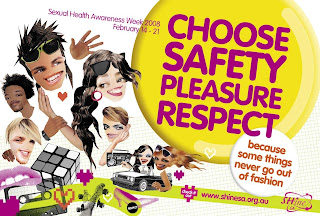I came across this on the web at a site called teaching tolerance: Here is what they say about themselves:
Founded in 1991 by the Southern Poverty Law Center,
Teaching Tolerance provides educators with free educational materials that promote respect for differences and appreciation of diversity in the classroom and beyond.
I quite liked some of the things that i saw and wondered if you might want to have a look as well. This particulalry struck me which they call the ABC of sexual orientation. In thier ABC is 5 steps to safer schools. What do you think?
5 STEPS TO SAFER SCHOOLSby Carrie Kilman
How can educators and schools create learning environments free of anti-gay discrimination?
1. Provide explicit support systems for LGBTQ students.Among the most effective ways to accomplish this in middle and high schools is through
gay-straight alliances (GSAs), extracurricular clubs that bring students of all sexual orientations together. Research shows that students in schools with a GSA are less likely to feel unsafe, less likely to miss school, and more likely to feel like they belong at their school than students in schools with no such clubs.
2. Serve as allies and role models.One day, middle school teacher Joann Jensen overheard a student saying, "This is so gay!" as she passed out a homework assignment. Jensen turned to him and said, "Really? Is that piece of paper homosexual?" The student didn't say it again, and the class got the message that such language wouldn't be tolerated.
"Being able to identify a supportive faculty member is a huge factor in academic success and feeling safe in school," says Eliza Byard of GLSEN. "Teachers have a crucial role to play simply by being visible allies."
3. Employ inclusive and respectful curricula."You can have one opinion personally, but deal with an issue entirely different professionally," says Bonnie Augusta, LGBTQ resource teacher for the Madison (Wisc.) school district.
Augusta shared an anecdote from a local elementary school. "We have a teacher who, from a religious perspective, thinks homosexuality is wrong," she says. "But in her unit on the definition of 'family', she includes same-sex families as an example. She says, 'If my students can't see themselves reflected in the curriculum, how are they going to learn to read?'"
Note: See our
recommended resources for early grades literature selections about family diversity.
4. Include anti-gay bullying in anti-harassment policies.Identifying specific types of abuse and inappropriate behavior can provide guidance and clarity to educators when a student is being harassed and can prevent anti-gay bullying from being excused as "kids being kids."
It's not just the existence of a policy that matters, but also how accessible it is, says Augusta. For example, reporting forms should be available to students and staff, and a process should be in place to monitor for both repeat harassers and repeat victims.
5. Advocate for statewide anti-discrimination laws.Wisconsin was the first state in the country to enact a law guaranteeing equal access to curriculum and extracurricular activities to all students, regardless of race, religion or sexual orientation.
"Statewide policy gives principals and districts the backup they need to do the right thing, even when it's controversial," says Byard. "Because LGBT issues are controversial, … it is hard to persist without the backup that statewide policy and legislative protection provides. And when districts are not proactive, statewide legislation can get the ball rolling."
This doesnt just have to apply to schools. I can see this applying to lots of youth groups and work places as well.
Do any of you employ something similar in your place of work? or with the young people that you work with?? Please comment.










































